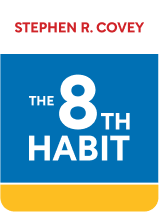

This article is an excerpt from the Shortform book guide to "The 8th Habit" by Stephen R. Covey. Shortform has the world's best summaries and analyses of books you should be reading.
Like this article? Sign up for a free trial here .
What are the basic human needs? How is Stephen Covey’s theory of the basic needs different from Maslow’s hierarchy of needs?
In his book The 8th Habit, Stephen Covey introduces his idea of what humans need to live. Unlike Maslow’s hierarchy of needs, Covey sees an individual made up of four parts, and a basic human need corresponds to each part.
Let’s look at what the basic human needs are, according to Covey.
An Individual’s Basic Human Needs
Covey explores how an individual is fulfilled by his list of basic human needs. He suggests that we replace old work paradigms with a “whole-person paradigm.” Under this paradigm, people aren’t only bodies (as in the Industrial Age) or only minds (as in the Information Age). Instead, they’re complete individuals with physical, mental, emotional, and spiritual needs. (Shortform note: Covey first introduced this way of thinking about human needs in The 7 Habits of Highly Effective People, which was published 15 years before The 8th Habit.)
Covey sees individuals as made up of four parts. Healthy people consciously develop the capacities of all four parts, and their contribution springs from the unique way in which they combine and express them. Each of the parts corresponds with a basic human need, as well as with a specific type of intelligence:
- The body is associated with our need for survival. Covey calls body-based intelligence “discipline”—we’ll call it “self-control.” Self-control is the ability to see things as they really are and to work to bring goals and ideas to fruition, rather than building castles in the air.
- The mind is associated with our need for learning. Covey calls mental intelligence “vision”—we’ll call it “focus.” Focus is considering as many options as possible and synthesizing these options into a small number of high-quality solutions.
- The heart is associated with our need for connection. Covey calls emotional intelligence “passion”—we’ll call it “dedication.” Dedication is what drives you to exercise self-control and maintain focus in the service of a larger goal.
- The spirit is associated with our need to give back. Covey calls spiritual intelligence “conscience”—we’ll call it “integrity.” Integrity refers to your ethical principles and your ability to differentiate right from wrong in complex situations.
Knowing what the basic needs are can help shape you not only into a better person, but also a better leader. Covey says that developing self-control, focus, dedication, and integrity will transform you into an exceptional leader. Of all of these forms of intelligence, Covey sees integrity as the key: Integrity functions as your moral compass, determining the direction in which you’ll apply all of your other abilities.
Comparing Covey’s Model With Maslow’s Hierarchy of Needs
Covey’s explanation of what the basic human needs are consists of the mind, body, heart, and spirit (each of these with corresponding needs and intelligences), and it is likely drawn from his religious background. His model overlaps with the well-known hierarchy of needs theorized by Maslow in some ways, but also diverges from it:
- Maslow’s hierarchy of needs is a broad-based triangle with five levels: physiological needs, need for safety, need for love and belonging, need for esteem, and need for self-actualization. Covey’s proposed needs for “survival” and “connection” are good matches with Maslow’s model, but his need for learning and the need to give back are grouped in Maslow’s “self-actualization” category.
In addition, Covey’s model of human intelligences has similarities and differences with Gardner’s Theory of Multiple Intelligences:
- Gardner’s Theory of Multiple Intelligences describes nine types of intelligence: verbal-linguistic, logical-mathematical, spatial-visual, bodily-kinesthetic, musical, interpersonal, intrapersonal, naturalist, and existential. Covey’s “conscience” and “passion” fit within Gardner’s conception of intrapersonal intelligence. However, for the others, Covey’s conception of human intelligence is more metaphorical than Gardner’s. Covey’s “discipline” refers to more than just the physical body, while his “vision” refers to a generalized problem-solving capability.

———End of Preview———
Like what you just read? Read the rest of the world's best book summary and analysis of Stephen R. Covey's "The 8th Habit" at Shortform .
Here's what you'll find in our full The 8th Habit summary :
- Why the most important job of a leader is to nurture individuality
- How an organization is like the human body
- Why leaders should let their employees evaluate them






